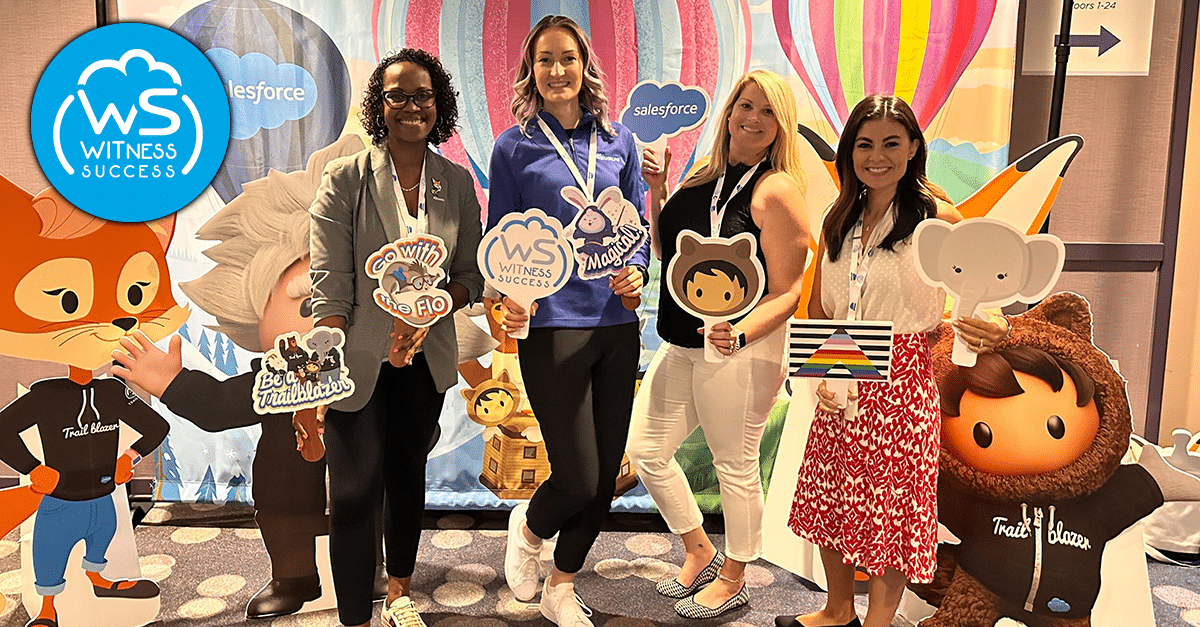In serving their country, military veterans dedicate themselves to a greater cause – one that demands collaboration and commitment to the success of the group before the individual. We’re proud to honor Silverline’s veterans and their families on this Veterans Day in the U.S. and Remembrance Day in Canada. We’d also like to take this opportunity to shine a spotlight on two Silverliners who have used the skills acquired during their military service to build fruitful careers in the Salesforce ecosystem.
“I was only 17 when I joined the military,” said Alycia Wright, Change Manager, whose parents had to sign paperwork alongside her to make the government her new legal guardian. “I learned so much about who I was as a person and what I wanted out of my life. The military may have taught me many lessons about leadership, accountability and professionalism, but the thing it taught me that most prepared me for my professional career is what motivates me daily.”
“I knew leaving the military that I wanted a team that had similar comradery to teams I had when I was still in,” said Wright. “As my corporate career has grown, I have learned the questions to ask in interviews to make sure the team I am on promotes an environment I can continue to grow in. My team at Silverline is never further than a Slack away and we are all willing to help each other whenever needed to get deliverables over the finish line.”
Mike Burtner, Business Analyst, also started his military service at 17, joining the U.S. Marine Corps in the 1980s. “My service in the U.S. Marine Corps was an opportunity to test and challenge myself, and to establish values that would define my adult life,” said Mike Burtner. “I learned how people in many countries lived, what they held important, and how our similarities were far greater than our differences. I learned that servant leadership means caring for the ones who need the most care.”
“Being successful in the corporate enterprise means Team Wins over Personal Success,” said Burtner, “displaying admirable character traits and resilience even and especially when times get tough. It means listening first before counseling others. Corporate success means remembering the customers we serve and how they depend on us for their own success. These are all understood to be foundational traits for success as a Soldier, Sailor, or Marine as well.”
Wright attributes her time in the military with immense personal growth, to three lessons that have proved particularly valuable in her corporate career:
Good leaders must empathize with those they are leading
“When I was going through the Naval Academy we did summer cruises where we would go out into the fleet and shadow at different commands,” said Wright. “The most impactful summer cruise I did as a Midshipman was when we shadowed newly enlisted sailors. I learned alongside them the struggles and triumphs they experienced on a daily basis. Being able to not only learn their day-to-day schedules but also perform their duties for a month helped grow me into a better leader.”
“It helped me understand how different messages are translated and perceived when orders come down the chain of command. Once I transitioned into a leadership role I focused on learning both what motivates those under me but also how they like to receive communication and to what detail. This cultivated an environment of mutual respect.”
Growth is better achieved in a team environment than it is isolated
“One of the main reasons I was interested in joining the military was because of the team camaraderie that would be sewn into each and every day,” said Wright. “I quickly learned that going through struggles and triumphs as a team helps you grow individually rapidly. When you are working in a team your strengths and weaknesses are highlighted. When working in a team you can find those whose strengths help fill the gaps from your weaknesses and learn from them.”
It is vital to rely on those around you to complete missions no matter how big or small
“This lesson was learned alongside the one above,” said Wright. “Everyone is going to have strengths and everyone is going to have weaknesses. It is important that no matter how big or small a task is, you are looking to those around you to help. It can be something as small as spell-checking a document or something as big as running a takeoff checklist a second time before flying into a combat zone. Individuals can never do as thorough a job completely alone.”
Not only is Wright a veteran in the Salesforce ecosystem, she’s also married to another veteran with a Salesforce career, giving her deep insight into the transition from military service to Salesforce. Her advice for other veterans looking to enter the Salesforce ecosystem? “Find what makes you tick.”
“The thing that is so amazing about the Salesforce ecosystem is that there are an abundance of different jobs that work within different corporate verticals to choose from,” said Wright. “Do not get discouraged if your entry into the ecosystem is in a position or vertical that does not create satisfaction. There are plenty of opportunities, and as you grow your career it is amazing to see how you can jump from finance to healthcare to manufacturing and so much more!”
Burtner’s advice is to get accustomed to the processes that define how Salesforce companies work, which are easier to absorb than they may seem. “Salesforce associates and partners live and breathe the Agile Framework: learn about it and you will find parallels to your military training,” said Burtner. “We bring teams of people together who may not know each other or even speak the same language, to accomplish highly complex goals in a short amount of time, meeting goals that benefit everyone in the end. Your leadership and technical skills are and will be invaluable in our environment.”
Are you a veteran interested in joining the Silverline team? Check out our open positions and apply today.




